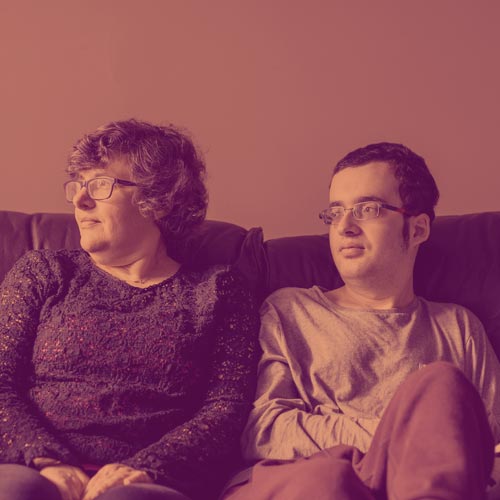Support for Teenagers
with NF1
Living with nerve tumours isn’t easy. We can help you find the confidence you need to live your best life. The first step is to understand NF1 and your health care.
What is NF1?
Neurofibromatosis Type 1 (NF1) is all to do with your nervous system (your brain and spinal cord) and how your nerve cell tissues develop. It causes lumps to develop along your nerves or under your skin, and can also lead to some other health issues.
NF1 is one of the most common conditions that’s passed on through families, and about 1 person in every 2,500 has it. Some people have a really mild form of NF1 and may not even realise they have it – they may just see some changes on their skin. Other people can have more serious problems that affect their health.
Diagnosis
If one of your parents has NF1, then it’s usually pretty straightforward for a doctor to tell whether you have NF1. But around half of children diagnosed, will be the first person in the family to have NF1 and this means it takes longer to be sure you definitely have it. You may also need to have a genetic test.
Your doctor will take a good look at you, particularly your skin, to see if you have two of the signs that can be symptoms of NF1. Some of these signs take a while to appear so doctors can take some time to tell if you definitely have NF1, especially if no-one else in your family has it. The early signs of NF1 are flat, milky brown marks on your skin, freckles in unusual places and lumps and bumps on your skin.
Bullying
Bullies often pick on what they don’t understand. Some of the symptoms of NF, such as tumours, deafness and a different way of speaking, can mean people with the condition are sometimes bullied.
Bullying can make people feel very low and have an effect on their confidence and self-esteem. And people with NF may already experience a sense of worthlessness, so bullying can make this worse.
If you think anyone you know is being bullied, it’s very important to speak to an adult. This could be a parent or relative, a teacher you trust, or your GP. They can then take action to stop the bullying.
Education
For support with a teenager’s education, please visit our "iNForm" pages
What to do if you need help with NF1
If you feel unwell, notice any new or unusual symptoms at any time, or you’re at all worried, you should always talk to your parents and see your doctor. And remember to remind him or her that you have NF1 and ask if the symptoms could be anything to do with that.
Some examples of unusual symptoms could be:
● Passing out, or fainting
● Getting more headaches that last longer
● Lumps that quickly get bigger or harder, or look different to the way they did
● Pain for no reason
● Changes in your eyesight
● And anything else that’s worrying you
You can also call the Nerve Tumours UK Helpline and speak to our specialists on 07939 046 030 on Mondays, Wednesdays and Fridays from 9am to 5pm.
You can also download our factsheet below for teens.
Download
Some helpful information and resources








